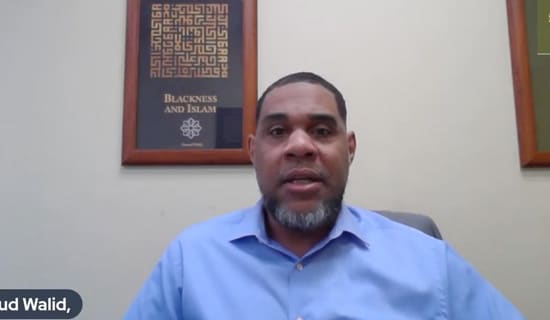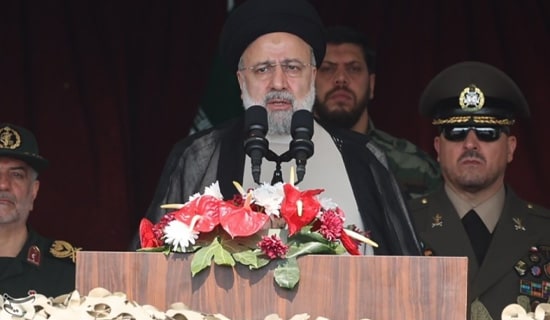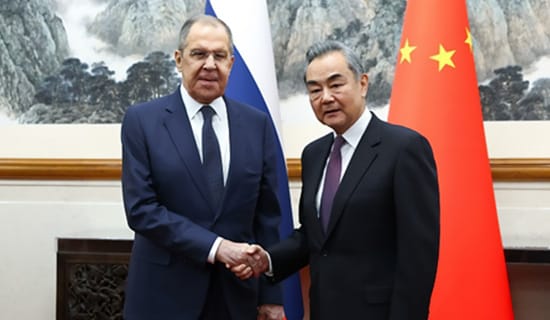On Friday March 6, 2020 OPEC + (the OPEC states plus Russia) failed to reach a consensus on oil production restrictions, and as a result every country will be free to produce as much oil as it can. Russia's Energy Minister Alexander Novak explained the situation: " This decision [to abolish production cuts] has been made, since we have not arrived at a consensus on how the 24 countries should behave simultaneously, taking into consideration the existing situation… As for the cuts, I believe that, taking into consideration the decision that was made today, starting April 1 of this year none of the OPEC and non-OPEC countries has any obligations". [1]
It was Russia's refusal to back the cuts that proved to be the deal breaker. The immediate result was a 10% drop in oil prices in a market already jittery over the effects of the coronavirus.[2] Now that the gloves were off, the Saudis announced price cuts perhaps with a view towards ousting Russia from its European markets.[3] This pushed oil prices sharply lower and the dollar and euro rose sharply against the ruble.
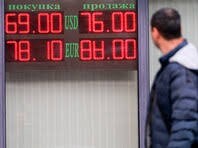
Russians watch the rate of the ruble plunge against the dollar and the Euro (Source: News.ru)
Although Russia can tolerate a lower price per barrel than OPEC members in terms of balancing the budget, the decision in the short term translates into lower foreign exchange earnings. If there is a rout in oil prices the economic consequences could become dire. The price of Urals oil, carries a base price of $ 42.4 per barrel in Russia's 2020 budget. If the pessimistic risk scenario of the Russian Central Bank materializes, and the cost of a barrel of oil is $ 25–35 in 2020–2022, the Russian economy will experience a recession, and GDP will fall by 1.5–2% this year. A 6.5–8% in inflation occur in 2020 due to the significant depreciation of the ruble.
Russia's Finance Minister Anton Siluanov remains optimistic that Russia would be able to fulfill its budgetary obligations over the next three to four years, even if oil prices dropped to $ 20-30.[4] The Ministry of Finance website predicted that the National Wealth Fund's liquid assets could cover budgetary losses from falling oil prices.[5] These short and long term risks of Russia's break with OPEC raised the issue of whether Russia had shot itself in the foot?
Below is a survey of the discussion that followed the collapse of the OPEC+ talks due to the Russian veto.
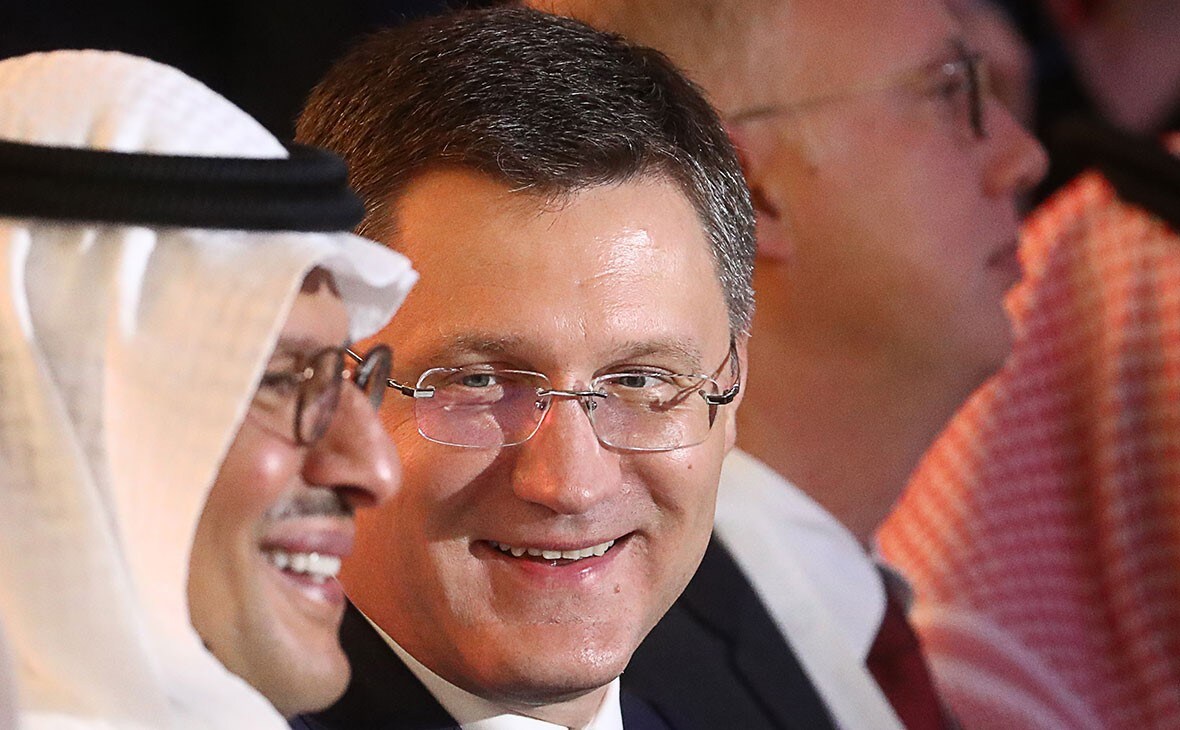
Russian energy minister Alexander Novak at OPEC + meeting in Vienna (Source: Rbc.ru)
Fitch Agency's Dmitry Marinchenko: Oil Price Collapse Unpleasant Surprise For Those Who Made The Decision
The decision to exit the production cut arrangement with OPEC was criticized in some financial quarters. Dmitry Marinchenko, director of the Fitch agency's natural resources and commodities group commented on the oil price collapse. "Moscow hardly expected oil prices to fall to almost $ 30, - this is probably a most unpleasant surprise, including for those who made the decision to exit the [OPEC production cuts] deal".[6] Marinchenko dismissed the argument made by supporters of exiting the OPEC production cuts that cutting loose from OPEC would translate into higher Russian production: "The benefit from the opportunity to increase production will be incomparably less than the loss from low prices, he predicted.[7] Therefore he termed the decision "absolutely irrational" and a shot in the foot. He also warned that a Saudi decision to raise production would further depress prices.[8]
Leonid Fedun, the top manager of Lukoil, predicted that Russia would lose $ 100-150 million per day. "The presence of the [OPEC] deal is much better than its absence." Sergey Khestanov. Macroeconomics Advisor to the Director General at "OTKRITIE" Brokerage House, concurred with Fedun. "I couldn't put it better than Fedun, everything is accurate" Additionally, he claimed that the production rise could be canceled out, because some of Russia's deposits would become unprofitable. Fedun accurately predicted a price collapse, once other OPEC members followed suit and raised production. “Because no one can say how crises will develop. Everything can follow a bad scenario that will make 2008 seem like a good year.” As gas and oil prices were related, the drop in oil prices would depress Russian earnings from gas. He predicted that Russia would have to return to the OPEC deal. That was possible, agreed Marinchenko, but now the market would treat OPEC + with greater skepticism.[9]
Rosneft Press Secretary Leontyev: The OPEC Deal Was Senseless For Russia, We Were Propping Up American Shale Oil
A major backer of the deal was the oil giant Rosneft owned by Igor Sechin, a close friend of Vladimir Putin. The company's press secretary Mikhail Leontyev claimed that the production cuts were counterproductive: "By yielding our own markets, we remove cheap Arab and Russian oil from them in order to clear a place for expensive American shale, and ensure the efficiency of its [shale's] production."[10]
Russian political scientist Leonid Krutakov a professor at the governmental Financial University predicted that the decision would be a body blow to American shale: " Russia has taken the right step, because, being in the general [OPEC] project, we actually sponsored shale production... If you look at the reports of shale companies since 2008, then they are operationally all unprofitable".[11] Krutakov predicted that Russia's market losses to American shale would be reversed:
“I think that for American shale this is a serious loss. There, the margin of profitability is much lower than ours. There is always a need to drill. It is by definition more expensive than any other oil and any other gas. As a result, shale mining will be unprofitable. The borrowing of oil shale companies must also be taken into account. But Russian oil companies may well ensure profitability of production at lower prices, which means that Russia has a chance to regain its market share by displacing American shale. The share that was lost during the period when the Russian oil industry was in the grip of OPEC + and our oil was giving way to American oil. In fact, now we will observe the reverse process. A good moment was also chosen - we note that right now the US shale companies are drafting a budget for the year, and a fall in prices will force them to declare themselves bankrupt."[12] It is worth noting that US analysts concur with the problems that indebted shale oil companies now face and the difficulty they will experience in remaining competitive and viable in the new situation.[13] Senior analyst Sergey Suverov of the BCS Investment House is convinced that not only American companies will be forced out but Canadian ones as well. Additionally, now that restrictions on production growth have been lifted, Russian companies can take advantage and develop new promising investment projects.[14]
Maxim Averbuch: There Are More Important Things Than The Price Of Oil
Maxim Averbuch, Director of the Institute for Commodity Market Forecasting moves the frame from economics to broader issues and rejects the view that Russia shot itself in the foot because "there are more important things than the current price of oil". While denying the conspiracy theory that Donald Trump is a Russian agent, Averbuch sees Trump as better for Russia than his Democratic opponents. He notes that incumbents find it easier to get reelected when the price of gasoline at the pumps is lower. So prices were going to fall in any case "As it was in 2008, in 2012, in 2016 and even before the midterm congressional elections in the fall of 2018, when oil prices fell from $ 86 to $ 50." Therefore, the price reductions would help Trump who "in his entire three years in power, sabotaged anti-Russian sanctions as best he could, not allowing the introduction of the most serious ones, like sanctions against the Russian state debt…he even publicly opposed sanctions approved by Congress aimed at disrupting work on the Nord Stream-2" The Democrats want to "introduce tough anti-Russian sanctions and restore Iran to the oil market." The choice is therefore obvious.
Additionally, Averbuch claims that the surprising Russian move will serve as a lesson to OPEC that thought it could twist Russia's arm: "A week ago, Saudi Arabia and other OPEC members reasoned as follows: we will reduce production by a million barrels, and let all these non-OPEC members cut by another 500 thousand, who and how much do not matter to us. But it was clear that the bulk of the decline would come from Russia. Russia does not agree? She will not go anywhere - the revenues from the export of hydrocarbons are too important for her, she will break down and agree… Nothing prevents Russia (with Kazakhstan joining it) from restoring OPEC +, but on its own terms - when all the other participants understand the extent of its influence on the price of oil and its readiness to make abrupt and seemingly suicidal moves. This may well be done after the presidential election is held in the USA - in order to raise the price of oil back to $ 60-65 per barrel."[15]
The Socia Media Blogs: Sechin Is Behind It All
SUPPORT OUR WORK


Rosneft boss Igor Seching (Source: Moscow-post.su)
Venturing afield to the social media blogs the name of Rosneft boss Igor Sechin appears as the mastermind behind the decision. The well-connected Nezigar Telegram channel that is read by Russian officialdom believes that "Igor Ivanovich Sechin has made one of the riskiest wagers in his career."
"With the coronavirus and the economic slowdown in the background, Sechin and his team proposed a risky gambit on the oil crisis and, to the dismay of some market players, withdrew from the agreement with OPEC.
"Globally, the idea is very adventurous, but far from hopeless.
Amid falling global oil prices, you can try to pick up a share of the global market and break the back of shale oil producers.
"This is an historic global redistribution of the market also means geopolitical preferences.
But in Sechin’s plan there is one big minus - with the low oil price, the ruble and the banking sector will collapse objectively.
"True, Sechin’s ally, Minister of Finance Siluanov, promises support from state reserves.
A weak ruble is also a good chance for our producers. And therefore, this is a game.
Russia's economy will shake a little in the near future. With coronavirus as a backdrop, everything will plunge downwards.
"But, according to Sechin’s plan, in six months or a year the Garden of Eden awaits us.
"The risks are enormous. Results are not guaranteed. At stake is the fate of Sechin himself.
After all, if the plan breaks down, the System will experience a catastrophic shock. And even the people closest to him will not forgive such a thing…
"However, playing roulette is our national trait."[16]
The Malyuta Skuratov blog (named after Ivan the Terrible's executioner) refers to the decision as an "amazing self-inflicted wound" taken at the time that the world economy is dropping and particularly the economy of China, a major oil consumer. Sechin was behind the decision: "The main person, who lobbied for renouncing the agreements with OPEC is Rosneft boss Igor Sechin. He has generally been considered a specialist in cooperation with OPEC since his time in government."
The rationale of driving out American shale producers and recapturing market share is also problematic: "It is impossible to calculate the depth and long-term duration of price reductions, and the cost of production in Russia, although lower than for shale deposits, can also be exceeded making us susceptible to a hit…Putin supported Sechin’s proposal, once again demonstrating that he acts on the side of his friends, and not ordinary Russians who already observe that the dollar is worth 68 rubles. The dependence of the ruble exchange rate on world market oil prices has not yet been canceled. For Rosneft that earns income in dollars, the further weakening of the ruble is beneficial." If there is a major budgetary shortfall, Russia's citizens will have to pick up the pieces: "Now it’s worth getting ready for the dollar at 70 and probably new ideas of the government (which in these conditions to implement national projects), how to get more money from citizens and spend less on them.[17]
The Tatar Shaltay Babay blog, claims that Sechin wants to corner all of Russia's domestic oil production via this move. It recalls Sechin's influence in other major international oil ventures such as getting Putin to invest 17 billion dollars in Venezuelan oil to prop up Nicolas Maduro, only to see China outbid Russia in acquiring Venezuelan debt backed by its petroleum reserves.[18]
[1] Sputniknews.com, March 6, 2020.
[2] Bbc.com, March 6, 2020.
[3] Timesofindia.com, March 8, 2020.
[4] Rbc.ru, March 9, 2020.
[5] Ria.ru March 9, 2020.
[6] Lenta.ru, March 9, 2020.
[7] Tass.com, March 7, 2020.
[8] Rbc.ru, March 8, 2020
[9] Tass.com, March 7, 2020.
[10] Rbc.ru, March 8, 2020
[11] Gazeta.ru, March 7, 2020.
[12] Vesti.ru, March 8, 2020
[13] See for example: Cnbc.com, March 8, 2020; Forbes.com, March 7, 2020.
[14] Vesti.ru, March 8, 2020.
[15] Novayagazeta.ru, March 7, 2020.
[16] T.me/russica2/ 24636
[17] T.me/mskuratov/1493
[18] T.me/ShaltayBabay/4003


